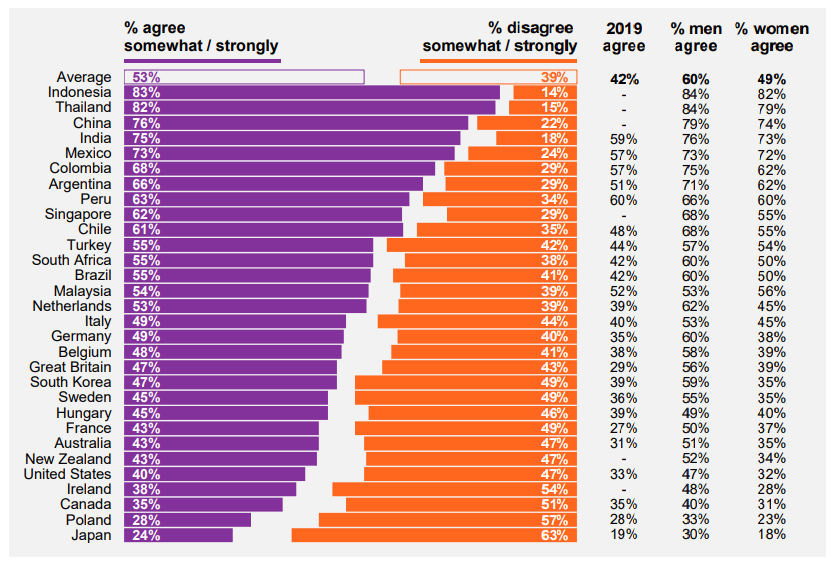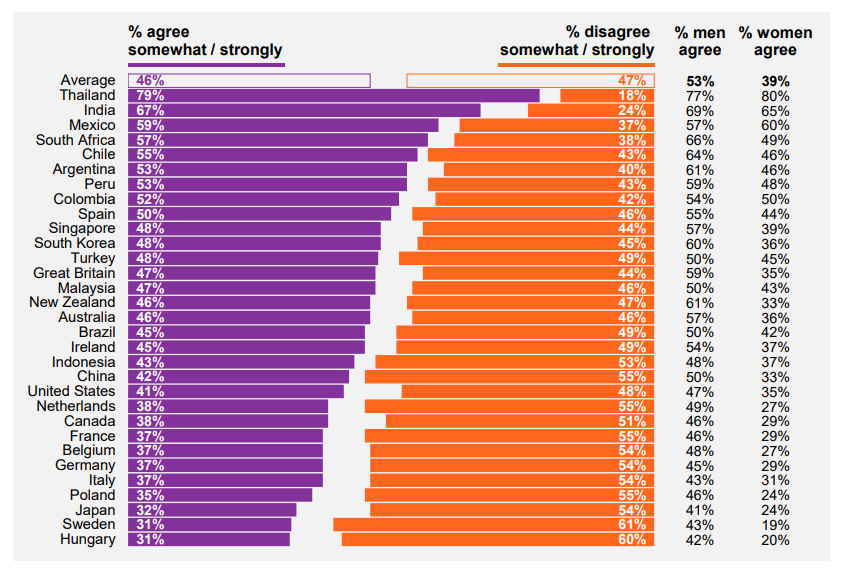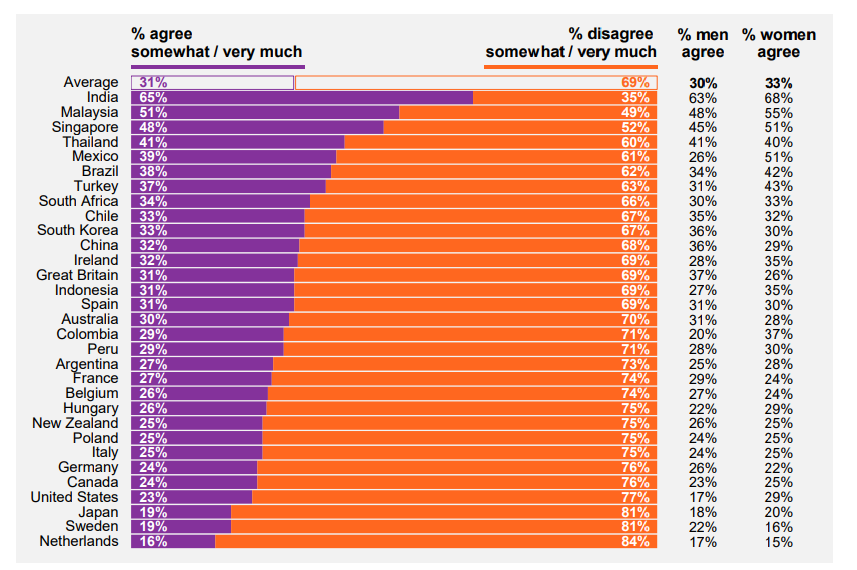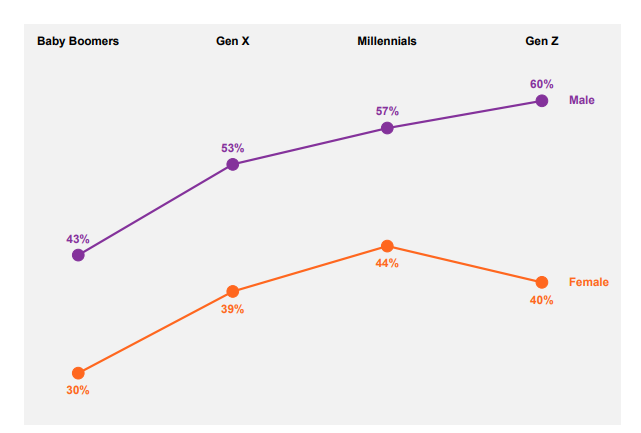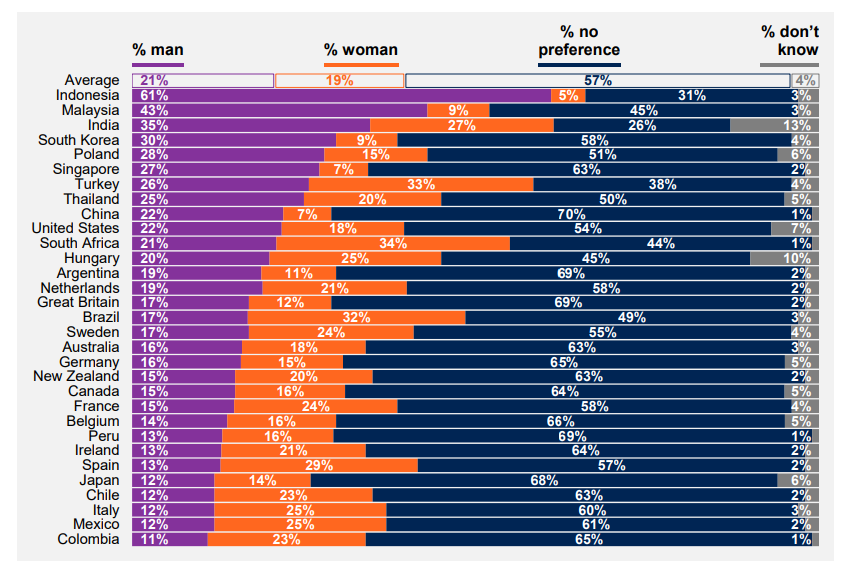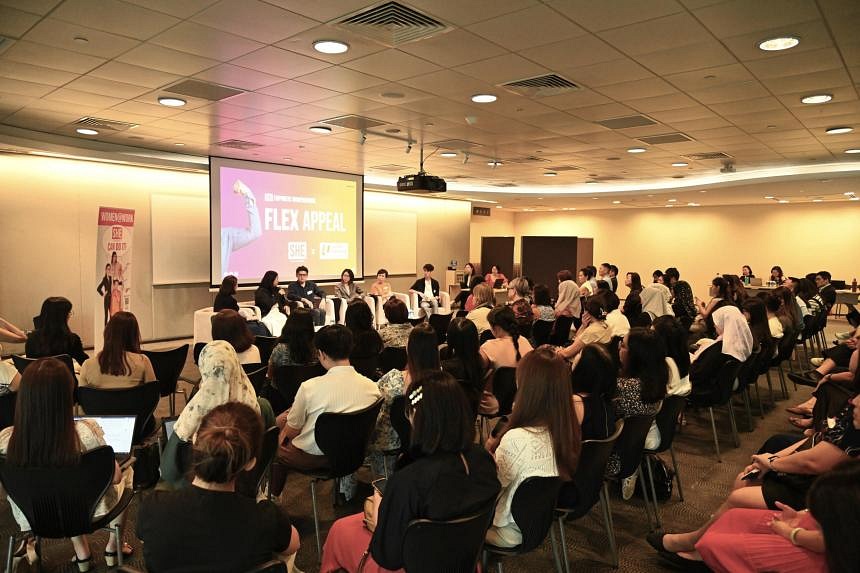Men on flexi-work more likely than women to feel overlooked for promotions: Survey
The SG Her Empowerment organised panel discussions on July 22 to discuss the gender differences in adoption of flexible work arrangements. PHOTO: SG HER EMPOWERMENT
Joanna Seow
Assistant Business Editor
Jul 23, 2024
SINGAPORE – Men who have taken up flexible work arrangements are more likely than women to feel they have been overlooked for promotions, a new survey has found.
More than a third – 36 per cent – of the men here on flexi-work said they had experienced this, compared with 27 per cent of the women on flexi-work.
Equity and fairness are a concern for employers as well, with 31 per cent of business leaders who offered flexi-work saying that one negative effect of flexi-work in their companies’ experience was unfair allocation of development and advancement opportunities.
Among parents, about 20 per cent of men reported receiving backlash from their supervisor or senior management for taking parental leave, compared with about 10 per cent of women.
These were among the findings from a survey conducted by non-profit organisation SG Her Empowerment (SHE), in collaboration with market research firm Milieu Insight.
A total of 1,200 Singapore resident workers – including 510 business leaders – were polled in May and June 2024.
“Having flexible work arrangements does not automatically equate to take-up rates because of deeply ingrained gender mindsets that impact norms, behaviours and choices at work,” noted SHE in the survey report published on July 22.
“For instance, women who use these policies may be disadvantaged as they are seen as less committed or ambitious, while men who seek flexibility may face the stigma for stepping away from traditional breadwinner roles.”
The survey found that 35 per cent of respondents felt that fathers or men should be the breadwinners of their family, while 3 per cent chose mothers or women. The majority said both parties could play the role.
These findings were consistent across generations, noted SHE in its report.
When asked who should take a step back from their career if family circumstances require it, 27 per cent of respondents chose mothers or women, while only 4 per cent chose fathers or men; the rest said the responsibility should be shared equally.
Flexi-work arrangements came into the spotlight earlier in 2024, when the Government announced new tripartite guidelines
making it compulsory from Dec 1 for employers to fairly consider formal requests for such arrangements.
Panellists at an event by SHE on July 22 discussed the survey findings and suggested ways for more men, women and employers to adopt flexi-work arrangements as the norm.
National Trades Union Congress assistant secretary-general Yeo Wan Ling, who is the director of NTUC’s U Women and Family and U SME units, recommended that companies shift to outcomes-based performance appraisals so that people who take parental leave or use flexi-work arrangements are not disadvantaged.
Bosses can also check in with subordinates more frequently throughout the year, as this can reduce the impact of face-time – of which people working remotely are likely to have less – on appraisals, she said during one of the panel discussions at the event at NTUC Centre.
“We need to look at helping workplaces transform to become more equitable in terms of compensation and promotions,” she told more than 100 people in the audience, who included senior managers, human resources professionals and members of community organisations.
Some of the panellists also highlighted the need to make flexi-work the norm, so that men can be more comfortable bringing up their caregiving responsibilities at work.
Ms Ong Ai Hua, deputy secretary (family and society) at the Ministry of Social and Family Development, said that it would be helpful for men to have more role models of other men taking leave, and to hear from male colleagues who take on more caregiving duties at home about how they worked out arrangements with their supervisors.
Although the food and beverage industry is not typically known for providing flexible work arrangements, panellists Mustaffa Kamal, co-founder and chief executive of F&B group The Black Hole Group, and Bernadette Giam, director of corporate affairs and human resources at Creative Eateries, another F&B group, spoke about how their companies have offered greater flexibility to their staff.
Mr Mustaffa said his company started planning the schedules of its 150 or so operational employees a month in advance, instead of a week in advance, to give them more certainty when it comes to planning family commitments.
“Spending family time and making sure that family affairs at home are stable would put you in the right state of mind to come to work and be able to contribute in an optimal manner,” said Mr Mustaffa.
Ms Giam noted that higher costs may seem inevitable, such as in having to deal with more variability when employing casual workers to cover the shifts of regular workers who are on reduced hours, and in having to pay managers more for dealing with more people and for implementing new frameworks for staff to follow.
But there is a cost to not trying to retain employees, she said.
This was also borne out in the SHE survey, which found that close to one in five workers currently on flexi-work said that if their employers stopped offering the flexibility, they would quit or look for another job that was more flexible.
SHE chairwoman Stefanie Yuen Thio said at the event that improving flexibility for workers is important for Singapore as its economy relies on people and the skills they bring to the workforce.
“Our one resource is something that’s going to be less tap-able if we continue to let these gender mindsets rule the day,” she said.


